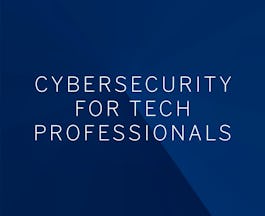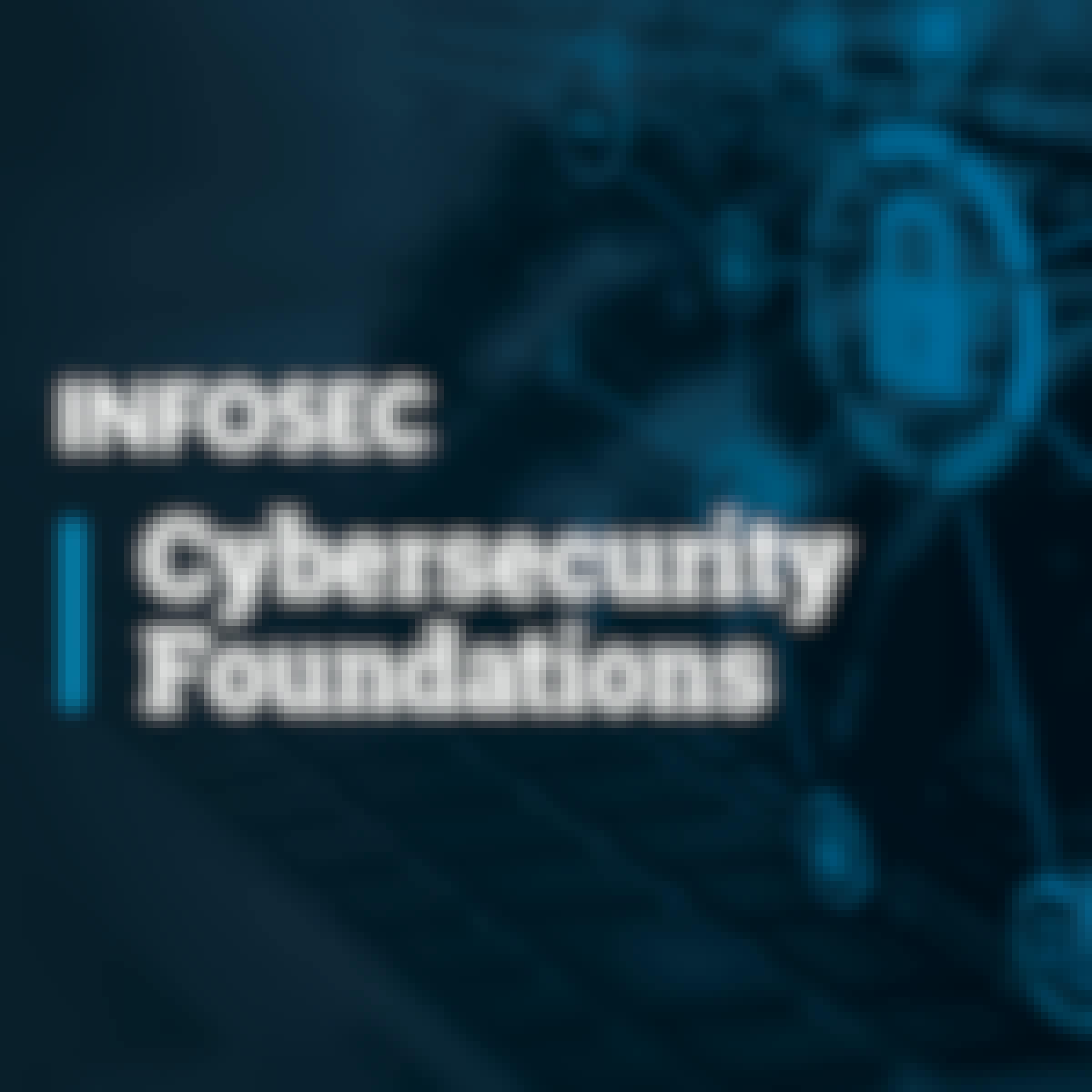Filter by
The language used throughout the course, in both instruction and assessments.
358 results for "cybersecurity"
 Status: Free
Status: FreeCampus BBVA
Skills you'll gain: Computer Security Incident Management, System Security, Computer Security Models, System Software, Cyberattacks, Software Security, Mobile Security, Network Security, Critical Thinking, Security Engineering, E-Commerce

University of Maryland Global Campus

University of London

CompTIA
Skills you'll gain: Network Security

Skills you'll gain: Security Engineering, System Security, Network Security, Software Security, Computer Security Incident Management, Leadership and Management, Security Software, Risk Management, Strategy and Operations, Algorithms, Cloud Computing, Cryptography, Cyberattacks, Operations Management, Security Strategy, Human Factors (Security), Software-Defined Networking, Cloud Applications, Communication, Financial Accounting

Skills you'll gain: System Security, Cyberattacks, Cryptography, Network Security, Security Engineering
 Status: Free
Status: FreeErasmus University Rotterdam
Skills you'll gain: Computer Security Incident Management, Cyberattacks, Security Engineering, Software Security, System Security, Human Factors (Security), Security Strategy, Leadership and Management, Network Security, Security Software, Culture

Google
Skills you'll gain: Cloud Computing, Linux, Python Programming, SQL

Skills you'll gain: Leadership and Management

Skills you'll gain: Cloud Computing, Linux, Operating Systems, System Security

Skills you'll gain: Cloud Computing, Cloud Platforms

University of Colorado System
Skills you'll gain: Security Engineering, Network Security, System Security, Computer Security Incident Management, Cyberattacks, Software Security, Security Software, Computer Security Models, Computer Networking, Leadership and Management, Security Strategy, Risk Management, Software Testing, Cloud Computing
Searches related to cybersecurity
In summary, here are 10 of our most popular cybersecurity courses
- Cybersecurity for Tech Professionals: Campus BBVA
- Bachelor of Science in Cybersecurity Technology: University of Maryland Global Campus
- Master of Science in Cyber Security: University of London
- CompTIA a+ Cyber: CompTIA
- (ISC)² Systems Security Certified Practitioner (SSCP): ISC2
- Cybersecurity Fundamentals: IBM
- Cybersecurity in Healthcare (Hospitals & Care Centres): Erasmus University Rotterdam
- Cybersécurité Google: Google
- Cybersecurity Leadership and Management: Infosec
- Cybersecurity Roles, Processes & Operating System Security: IBM










